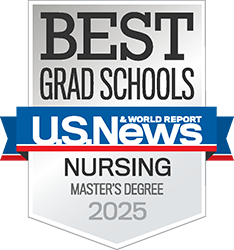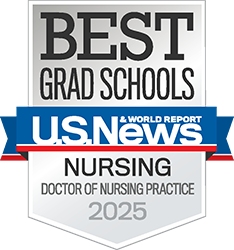Priming the Pipeline Outreach to teens raises awareness of nursing careers


Children begin hearing “What do you want to be when you grow up?” by the time they are old enough to understand the question. Eliciting “nursing” as the answer means exposing youth to health care career options long before they begin filling out college applications.
Cizik School of Nursing at UTHealth Houston is taking multiple approaches to reaching young learners.
For example, the school has long been involved with HOSA Future Health Professionals. This summer, it served as a competition host for the organization’s international leadership conference, which drew more than 12,000 participants to Houston from around the world June 26-29. The Student Affairs team staffed a booth at the George R. Brown Convention Center, and more than 100 teens visited Cizik School of Nursing for three events judged by faculty and staff members.
Locally, high school students have gained a more in-depth view of nursing through two grant-funded pilot programs that involve partnerships with large hospital systems.
The first was launched in summer of 2023 in partnership with Memorial Hermann – Texas Medical Center. Through Advancing Visibility through Accelerated Nursing Curricula with Collaboration and Engagement (ADVANCCE), 27 students from Houston Independent School District (HISD) high schools received two weeks of online education and a week-long immersion experience in Cizik School of Nursing’s Simulation and Clinical Performance Laboratory. The pilot was funded by a $250,000 grant from the William Randolph Hearst Foundation.
This summer, the school welcomed 25 students through the Inspiring and Growing Nursing Interest Through Exploration (IGNITE) program funded by the HCA Foundation. High schoolers from HISD, Spring ISD, Spring Branch ISD, Katy ISD, and Channelview ISD spent a week learning skills as well as touring the Gulf Coast Regional Blood Center and an HCA hospital, where they had lunch with the chief nursing officer and the chief executive officer.
“Everyone in our health care system is fully engaged,” said Ann Russell, vice president of academic partnerships for HCA Houston Healthcare. “This is a great partnership. We understand that this is where our future lies.”
Many of the students in the pilot programs were already preparing to work in health care through career and technical education (CTE) programs at their high schools.
“Texas really emphasizes CTE,” said Maja Djukic, PhD, RN, FAAN, who serves as principal investigator on the grants. “By the time students graduate high school, they can have employment-ready skills and certifications.” Djukic is Cizik School of Nursing’s assistant dean for research and the John P. McGovern Distinguished Professor in Nursing.
“We have pathways for students that they choose starting in 8th grade,” explained Adiah Leonard, a certified medical assistant (CMA) and teacher at Dekaney High School in Spring ISD. She accompanied two students to Cizik School of Nursing and was pleased that they earned their Basic Life Support Training certifications in the IGNITE program.
ADVANCCE students received five health care certifications, and IGNITE participants earned two in their week on campus, said D’Hania Miller, MSN, RN. Miller is co-investigator for the pilot programs and developed curriculum for high school and community college CTE programs before joining the nursing school as an instructor.
Both groups benefited from interacting with working nurses. Memorial Hermann nurses mentored ADVANCCE students throughout the 2023-2024 school year, and those in the IGNITE program engaged with more than two dozen HCA nurses who volunteered in the Simulation and Clinical Performance Laboratory.
Andrea Avendano, an incoming senior at Tompkins High School in Katy ISD, appreciated the chance to talk with the HCA nurses and ask questions.
“They all told me that nursing is a field where you can always learn more,” she said. “If you don’t like a specific field, there’s always something more you can do.”
Avendano’s school does not offer CTE programs, but her cousin learned about IGNITE through a teacher at another Katy school. The teens both plan to become nurses. They volunteer at a local hospital and signed up for IGNITE together. “This just made me want to go into nursing more, because we got to do more hands-on activities and learn a lot,” Avendano said.
Despite their high school preparation, even students who have access to CTE programs often struggle with the transition to working in health care fields or continuing their educations to earn college degrees, especially if they come from disadvantaged backgrounds.
“Both pilot programs are informed by the social mobility framework, which posits that populations born into socio-economically disadvantaged environments require active interventions to successfully pursue education and jobs that allow them to progress up the socio-economic ladder. While nursing is an excellent career for social mobility, it has high barriers to entry,” Djukic said. “Therefore, our programs provide social and financial support, mentorship, exposure to nursing school and work settings, and interpersonal and specialty skills building that are all essential in successfully bridging the high schoolers from underserved communities interested in health care careers to successfully enter education and jobs in health care.”
Djukic and Miller hope to secure additional funding to continue and expand their efforts, perhaps adding camps over fall and spring breaks or working with younger students before they make that 8th-grade decision on which career field to focus on in high school.
“We need to move even further back into the middle schools to build interest in health sciences,” Miller said.



